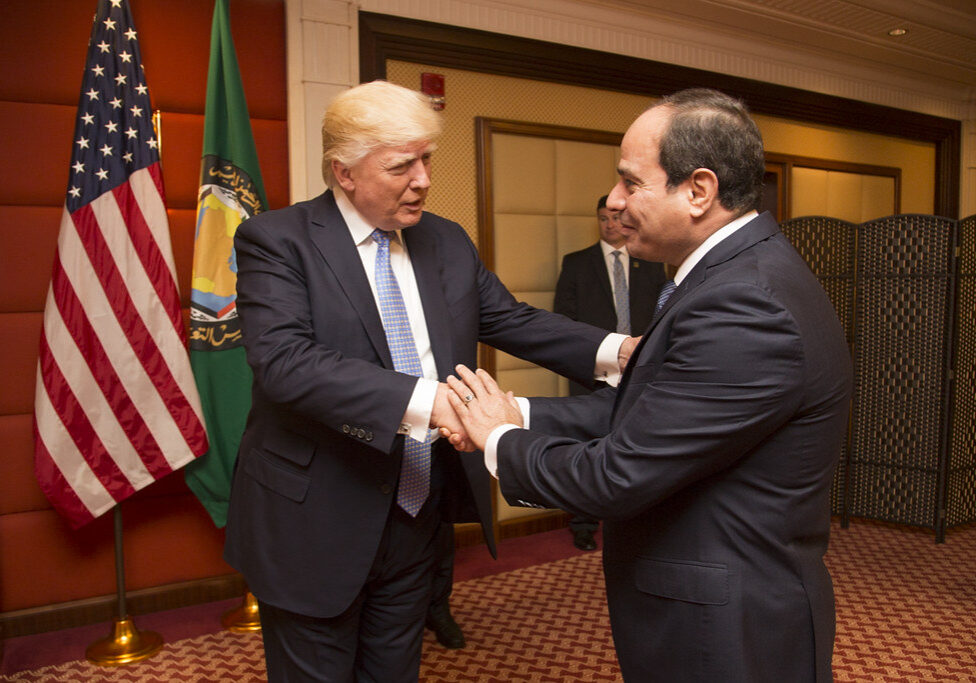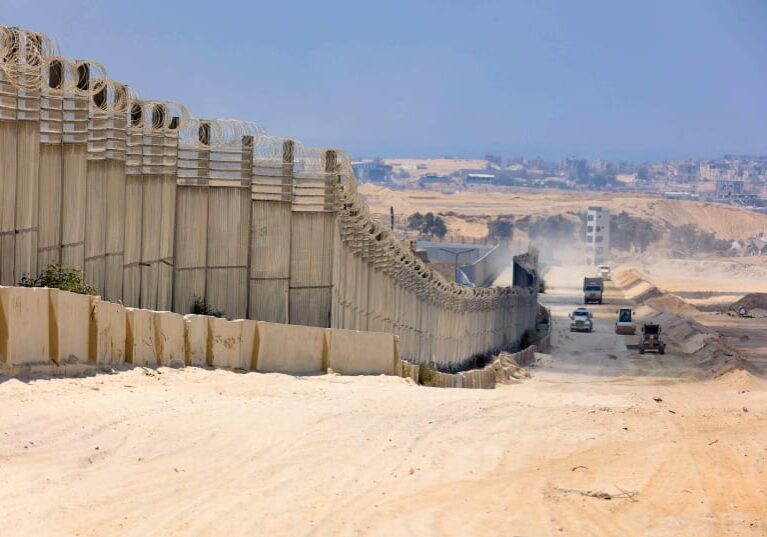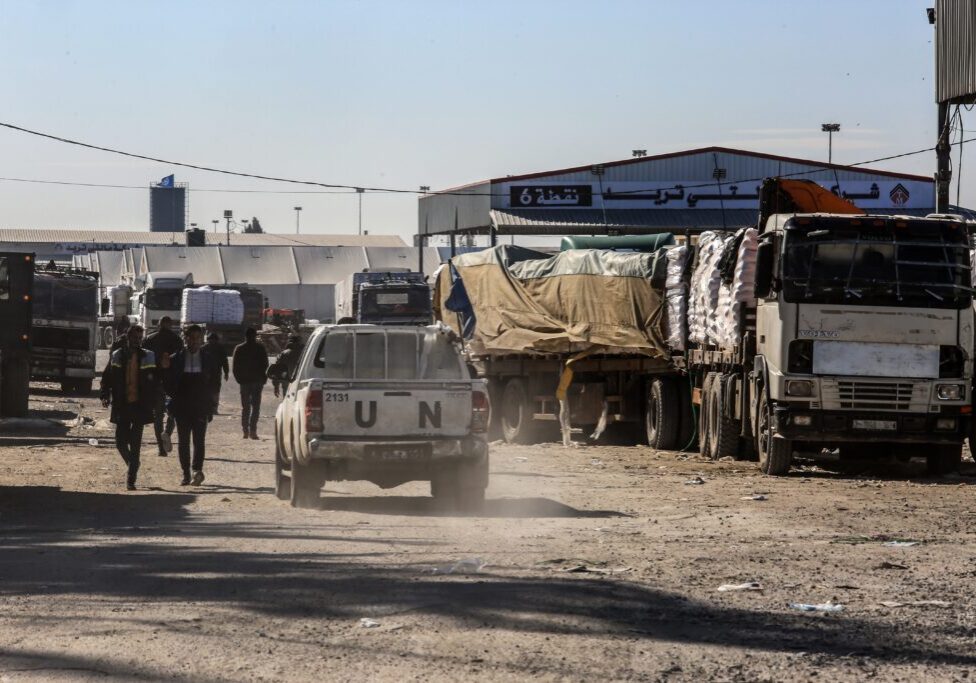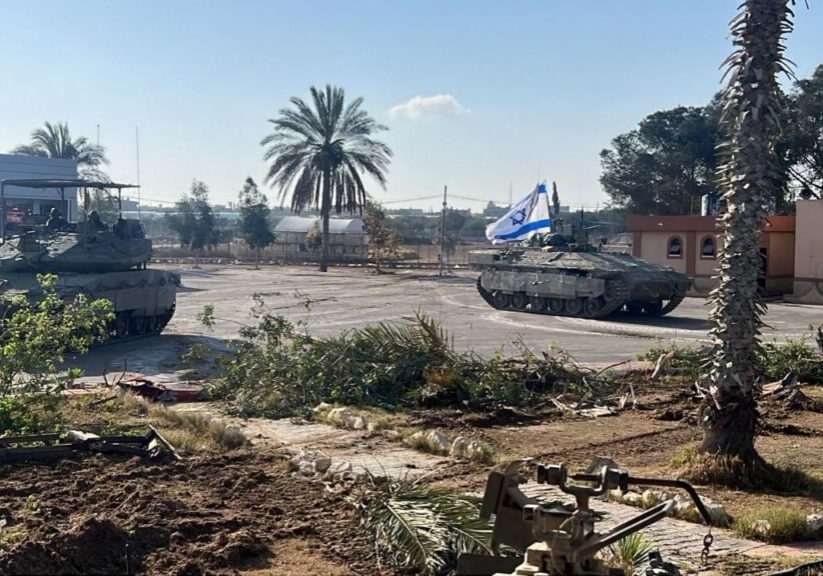Australia/Israel Review
Eyewitness to the Mideast Collapse
Dec 19, 2014 | Sharyn Mittelman
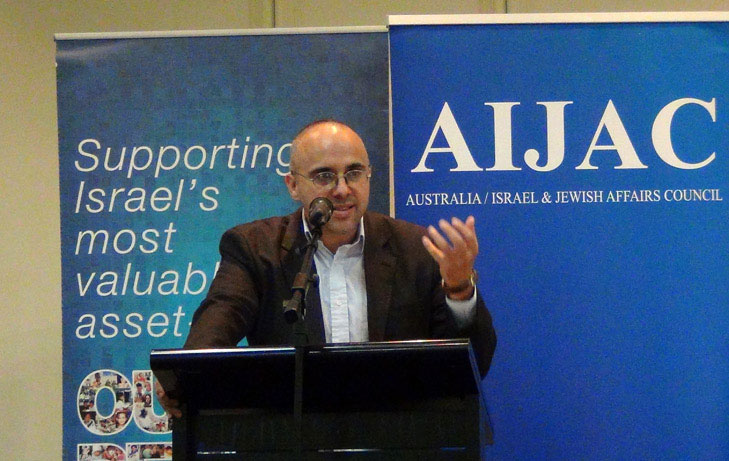
Sharyn Mittelman
Dr. Jonathan Spyer is a Middle East analyst who has repeatedly travelled to Syria and Iraq to understand the complex network of jihadist groups currently fighting there. He was recently in Australia and New Zealand as a guest of AIJAC.
Spyer told a Melbourne audience that the Middle East faces its greatest change since the collapse of the Ottoman Empire, as “borders which had seemed to be permanent between states are fading into irrelevance… and new political forces are on the rise.”
Spyer describes the Middle East prior to the “Arab Spring” in 2011 as generally divided between pro-American and pro-Iranian camps. Iran’s allies and clients include the Syrian Assad regime, Hezbollah in Lebanon, the Iraqi government, Hamas and Islamic Jihad in the Palestinian territories, and the Bashir regime in Sudan, while the pro-US bloc rested on American friendships with states including Egypt, Saudi Arabia, Turkey and Israel.
The Iranian alliance has sought to challenge the pro-US bloc for regional hegemony to control the Persian Gulf and to create access to the Mediterranean through a contiguous line of pro-Iranian regimes. Spyer notes that while Iran claims its goal is “authentic Muslim power” against the “declining” USA, in reality Iran seeks to control the region because it is “vital to global energy supplies, and therefore to the global economy.” Spyer says that Iran understands, “that real power in the Middle East is won and lost in the Gulf”, as it has estimated oil reserves of 565 billion barrels, accounting for more than 63% of the world’s known oil reserves. Therefore, Iran’s primary goal is “to tempt or intimidate other countries into a defence alliance [or] cooperation with Teheran.”
Spyer commented that in geo-strategic terms, Iran has no reason for hostility towards Israel, yet it is flamboyantly hostile for its own propaganda purposes. He said, “The Iranians as Shi’a Muslims and non-Arabs are essentially strangers, if not historical foes in the Arab and overwhelmingly Sunni Middle East. The Iranians hoped that by making themselves the militant champions of the Palestinian cause, which remains the central cause of pan-Arabism, they can turn it into an endless banner of legitimacy for their own cause.”
Spyer reflected that initially the Arab Spring appeared to work in Iran’s favour, as pro-US Arab states Egypt and Tunisia collapsed, and were replaced by Muslim Brotherhood forces. It also led the pro-US bloc to be concerned with the US’s failure to back its allies, after the US supported calls for Egyptian President Mubarak to step down.
Meanwhile, Qatar and Turkey, as pro-Muslim Brotherhood states, were also looking forward to increased regional involvement with a new Muslim Brotherhood bloc, that would include Egypt, Tunisia, potentially Syria and amongst the Palestinians, Hamas. However, these hopes were short lived as the Egyptian military coup ended Muslim Brotherhood power on July 3, 2013.
Spyer said that, as a result of the confused American reaction to the Arab Spring, “there is no longer a coherent pro-US alliance in the region”. He believes the pro-US bloc has been replaced by a pro-Sunni bloc built on the axis between Cairo and Riyadh, to counter Iran’s desire for regional hegemony. The new alliance also includes Jordan, the United Arab Emirates, Kuwait, the Palestinian Authority, and covertly, Israel.
According to Spyer, the failure of Arab states to foster development, modernity, national identity and citizenship has meant that a new Middle East is taking shape based on religious, ethnic and sectarian lines. This regional chaos has enabled jihadists, most prominently ISIS, to take control of territory stretching across Syria and Iraq. Spyer said, with the “breakdown of powerful centralised regimes, and the ambitions of Iran and desires of the Saudis to contain those ambitions, and growth and proliferation of ethnic and sectarian and political and military organisation among both Sunni and Shi’a, the Middle East is now [afflicted] by sectarian war stretching from Lebanon down to Yemen, taking in Iraq, Syria, to a lesser extent Bahrain and also eastern Saudi Arabia.”
Spyer noted, “the Shi’a side in this war remains united, whereas the Sunnis are divided”, with divisions between those who support and are against both Muslim Brotherhood forces and extremist jihadist groups including Islamic State.
Regarding the American role in all this, Spyer said, “the US is no longer a central player.” He added, “The US has chosen to adopt a strategy which precludes effective involvement, to seek [relations with]… Iranians, to maintain good relations with Sunnis except for the extreme among them, and seek to bridge between all forces, Sunni and Shi’a, except the most extreme, the ISIS and al-Qaeda.”
However, on a positive note for Israel, Spyer said, “the acquisition of new enemies can only bring with it the acquisition of new friends.” In this new strategic picture, Israel has been able to build closer relationships with countries that are also threatened by Iran, including countries that do not officially recognise Israel, in the Gulf and Saudi Arabia.
Nevertheless, Spyer concludes that Israel remains an outsider to this process of change in the Middle East and “not a partner”. Therefore, he believes the task facing Israel is for it to fence itself off from the chaos, which requires security arrangements – building fences, surveillance, intelligence gathering, military deployments on the border, as well as diplomacy – while preserving the good relations Israel has with countries including Egypt and Jordan, and even with the Palestinian Authority, and substantively continuing development of diplomatic and other ties in the Gulf.
Spyer’s assessment points to a Middle East in a state of transition, with the process that began with the Arab Spring having not reached its conclusion. Amid this uncertainly that threatens almost every nation in the region, Israel appears less vulnerable than most states at the moment, he argues, but it will still have to grapple with strategic threats from both pro-Iranian forces and Sunni extremists on its borders, especially al-Nusra already controlling Quneitra along Israel’s Syria border, as well as the opportunities that new alliances may bring.
Dr. Jonathan Spyer is a senior research fellow at the Global Research in International Affairs (GLORIA) Centre in Herzliya, Israel.
See this video of Dr Spyer addressing these issues to a Melbourne audience in December.
Tags: Egypt


